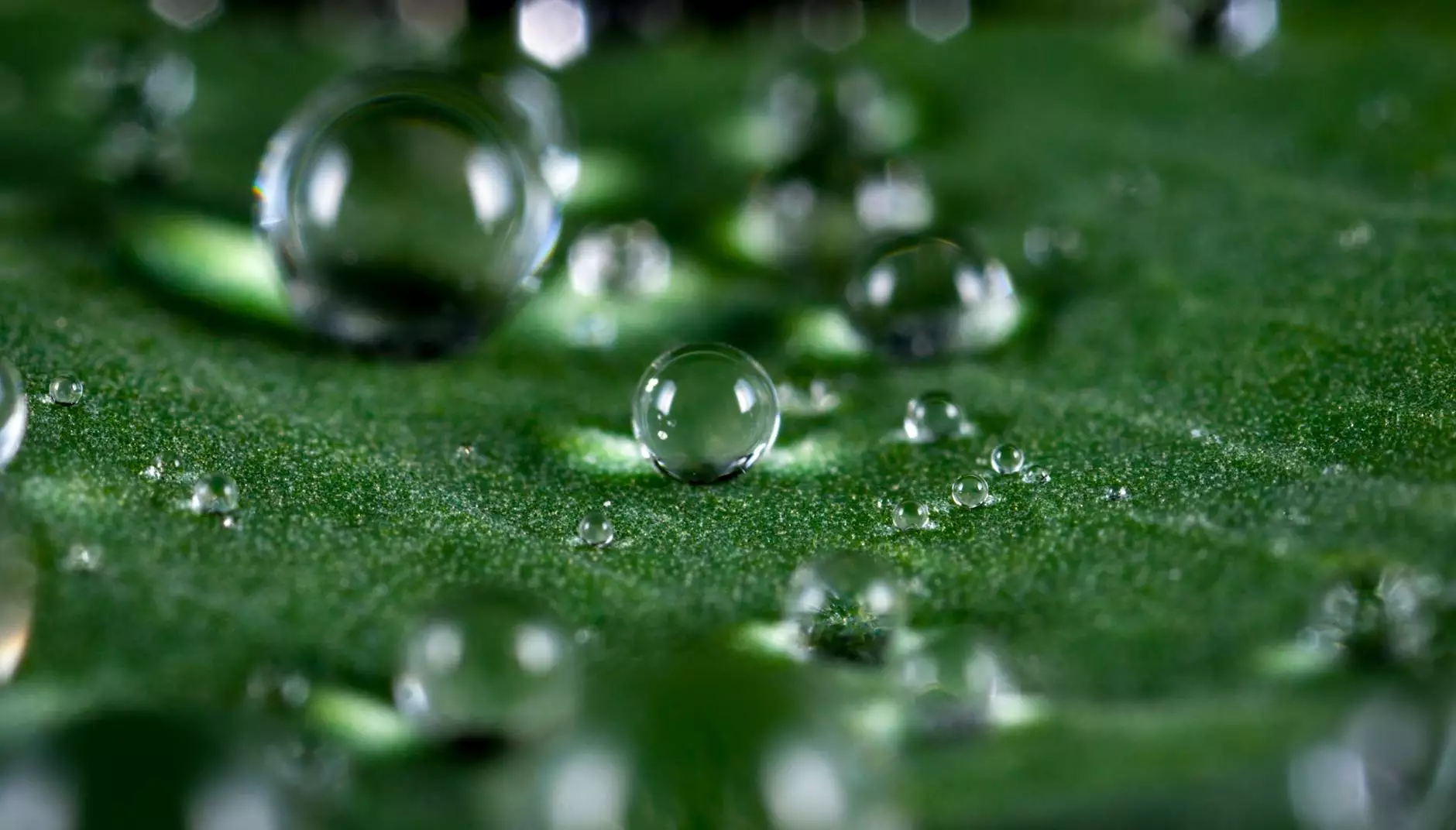Understanding the Importance of Water Treatment Solutions

Water is an essential resource that is vital for life, industry, and health. In our modern society, the purity of water is often compromised due to pollution, industrial waste, and agricultural runoff. Water treatment solutions are crucial in guaranteeing that the water we consume and use meets safe standards. In this comprehensive guide, we delve deeply into the various aspects of water treatment solutions, including their significance, methods, and sources.
What Are Water Treatment Solutions?
Water treatment solutions refer to the processes and technologies employed to improve the quality of water, making it suitable for a specific purpose, primarily safe human consumption. These solutions are critical in both residential and commercial settings and encompass a variety of methods designed to remove impurities, pathogens, and harmful chemicals from water.
The Need for Water Treatment
The necessity of treating water lies in the potential health risks associated with contaminated water. Consuming contaminated water can lead to various illnesses, some of which include:
- Bacterial infections (e.g., E. coli, Salmonella)
- Viral diseases (e.g., Norovirus)
- Parasitic infections (e.g., Giardia)
- Long-term health issues from chemical contaminants (e.g., lead, mercury)
Consequently, effective water treatment solutions help mitigate these risks, enhance public health, and contribute to overall wellness in communities.
Types of Water Treatment Solutions
Various methods are utilized to treat water effectively. Each solution has its unique processes and applications. Some of the most commonly employed water treatment solutions are:
1. Chemical Treatment
Chemical treatment involves the addition of specific chemicals to water to remove contaminants. This method includes procedures such as coagulation, flocculation, and disinfection.
- Coagulation: This process involves adding coagulants (like aluminum sulfate) to water, which enables small particles to clump together into larger ones.
- Flocculation: After coagulation, gentle stirring helps these larger particles, known as flocs, settle out.
- Disinfection: Chemicals like chlorine or ozone are used to eliminate bacteria and viruses from the water.
2. Physical Treatment
Physical treatment solutions are processes that physically remove contaminants without altering their chemical composition. Key methods include:
- Filtration: This method uses filters to separate impurities from water. Different filtration systems, such as sand, carbon, or membrane filters, are available based on the required outcome.
- Settling: Allowing water to sit undisturbed leads to the settling of heavier particles at the bottom.
- Reverse Osmosis: A highly effective physical method that involves pushing water through a semipermeable membrane, allowing only pure water to pass, while contaminants are separated and discarded.
3. Biological Treatment
Biological treatment leverages microbial activity to decompose organic matter and purify water. Some approaches include:
- Activated Sludge Process: This involves aerating sewage to promote the growth of microorganisms that digest organic waste.
- Bioswales: Natural landscapes designed to manage stormwater, bioswales use vegetation and soil to filter pollutants.
- Constructed Wetlands: Engineered systems that mimic natural wetlands, using plants to treat wastewater.
Water Purification Services: Elevating Water Quality
For individuals and businesses, seeking specialized water purification services can significantly enhance the quality and safety of water. These services provide tailored solutions to meet specific needs based on the water source and intended use.
Benefits of Professional Water Purification Services
Engaging professional water purification services offers numerous advantages:
- Comprehensive Water Testing: Experts conduct thorough analyses to determine contaminants present in water and recommend appropriate treatment solutions.
- Customized Treatment Plans: Professionals design tailored purification systems that effectively address individual or commercial needs.
- Regulatory Compliance: Water treatment services ensure that the treated water meets local and international safety standards.
- Expertise and Quality Assurance: Trained professionals bring experience and knowledge, ensuring the treatment process is effective and efficient.
Finding Quality Water Suppliers
Reliable water suppliers play a crucial role in delivering treated water to consumers. Whether it’s for households or businesses, finding quality water suppliers can ensure that clean, safe water is always available.
Key Factors to Consider When Choosing Water Suppliers
When selecting a water supplier, consider the following criteria:
- Source of Water: Understand where the water is sourced from and the quality assessment procedures implemented.
- Certification: Ensure the supplier complies with health regulations and possesses necessary certifications.
- Delivery Times: Timely delivery is essential to avoid disruptions in water supply.
- Customer Service: Good communication and responsiveness are vital for addressing any concerns.
Exploring Water Stores for Convenient Access
Water stores provide a convenient solution for individuals seeking direct access to purified water. These establishments play a pivotal role in local communities by offering affordable and safe drinking water.
Advantages of Using Water Stores
Using water stores has several benefits, including:
- Affordability: Water stores often provide a cost-effective option for purchasing purified water.
- Accessibility: Many water stores are conveniently located, making it easier for consumers to obtain clean water.
- Variety of Options: Water stores typically offer various types of water (e.g., distilled, spring, mineral), catering to diverse consumer preferences.
Innovative Technologies in Water Treatment Solutions
The field of water treatment is continually evolving, with new technologies emerging to enhance effectiveness and efficiency. Some innovative water treatment solutions include:
1. Advanced Filtration Systems
Technologies such as ultrafiltration and nanofiltration are gaining popularity, providing high levels of contaminant removal beyond traditional methods.
2. Smart Water Management Systems
Utilizing IoT and AI, smart water management systems can monitor water quality in real-time, predicting potential contamination issues and enhancing overall management.
3. Decentralized Treatment Solutions
Smaller, localized treatment systems offer communities or businesses a sustainable, cost-effective way to purify water on-site, reducing reliance on large municipal systems.
Conclusion: The Future of Water Treatment Solutions
As the global population continues to rise, the demand for clean and safe water will only increase. Innovations in water treatment solutions are essential to overcoming challenges such as pollution and scarcity. It’s imperative for communities, industries, and individuals to invest in effective water treatment systems and services that not only purify water but also promote environmental sustainability.
At Bimakskimya, we are committed to providing top-notch solutions in the fields of water purification services, water supply, and water stores. With a focus on quality and safety, we ensure that our customers receive the best water treatment solutions available. Partner with us to secure a sustainable and healthy water future!









